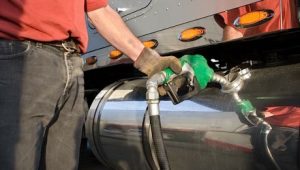The trucking industry tends to invest millions of dollars trying to avoid major accidents that cost a lot of money. The trucking companies spend on anti-rollover and warning alert systems, as well as technologies that monitor and limit speed and ELD systems. Tens of millions are also spent on endless accidents, lawsuits and claims. All this money goes to prevent the accidents or deal with the results, when so many of those crashes could be avoided if truck drivers were trained better.
Big trucking companies hire poorly trained drivers instead of attracting those who are highly skilled and pay them accordingly to make them want to stay. There are still truly professional drivers on our roads. But many of them soon will retire, and others are likely to leave the industry as they are not paid enough for the level of work they provide the industry prefers investing in technologies, than high skilled employees.
Often people who run big trucking companies are business men who don’t realize that it is not enough to just place someone in a driver seat of the truck. Smaller companies seem to be aware of that, and that is why they have a lower percentage of accidents.
Big companies that don’t care for proper training just do whatever it takes to hire cheaper workforce. For them it is all about money rather than public safety or anything else for that matter. It is also dangerous for the new drivers. Nobody wants to be involved in a truck accident, and everyone deserves proper training before being sent on the job. Technologies are good as they are great safety tools, but they are not the solution.
This situation needs measures like investing in training for drivers and pay experienced drivers properly. It will help prevent many accidents and make the toads safer, as well as reduce the amount of money companies spend on accidents and their consequences.





I find your article very insightful, it is really a shame that we sometimes tend to rely so much on the ability of machines over our human abilities. Most transport companies blame most accidents on the efficiency of the truck in question or whatever kind of vehicle they use. There is truth in the conception that the more artificially intelligent these vehicles are the lesser the risk, but it is sometimes ironic that the truck or vehicle despite its amount of sophistication is put under the hands of someone who is not sophisticated enough use it. This cry for adequate training of truck drivers is absolutely justified and should even be looked into by authorities. With the economy growing and gas prices falling, the trucking industry would definitely grow with a demand for more truck drivers. Coupled with the fact that there is a 14 percent increase in accident fatalities as of last year, should we increase this number by putting our faith on technology that might be manned by an untrained professional.
However although every licensed truck driver should have passed very detailed examinations for driving skill, industry rules and regulations, plus practical knowledge of large CMVs, there are still some truckers who are either inexperienced or who never received the necessary training to operate their vehicle safely. Each year, a percentage of trucking-related traffic accidents that occur on the highway, beltway, surface streets and interstate are attributed to improper vehicle operation possibly due to lack of driver training or experience.
Technology development is the way forward for our progress but the risk of inexperienced untrained truck drivers is not only a massive risk to their lives but the growth of the company they work for. Prevention is always better than a cure.
Very true! I think to many teens and college students think that they are above this type of work, but as you mentioned there is a great need for truckers. From my understanding experience can lead to high pay in this field. I work at Wal mart and know that they only allow truck drivers to drive for eight hours at a time. Thanks for the good article!
How much training actually goes into training a driver like that? Seems like the cost of training would be a ton less than paying for even one accident